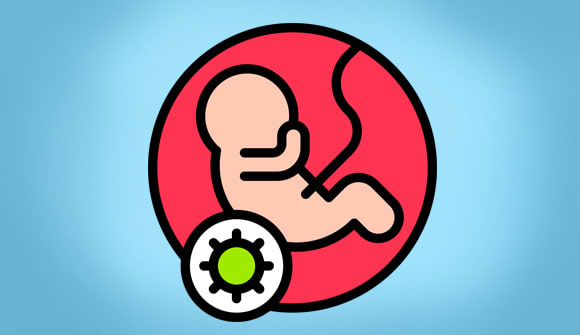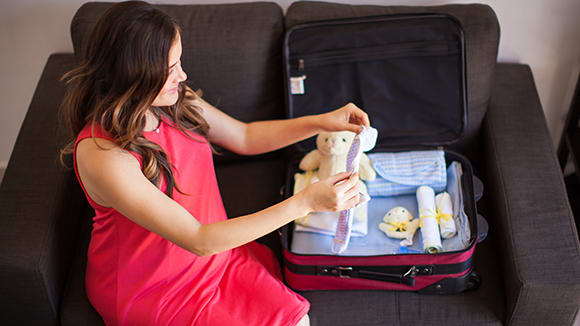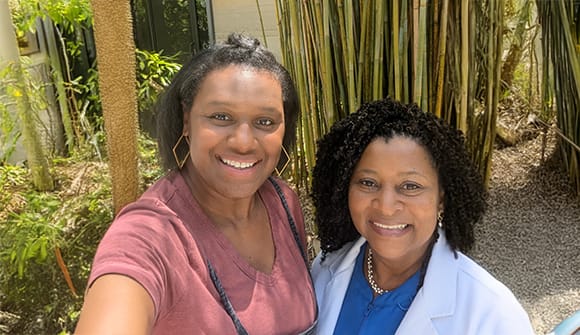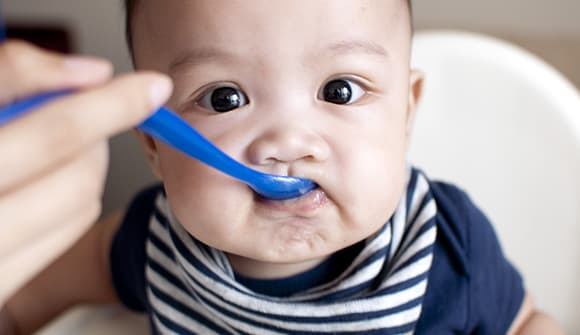COVID-19 and pregnancy
What we know, what we don’t, and what expectant moms should do
Article Author: Katie McPherson
Article Date:

Coronavirus is all anyone can talk about right now, and for good reason. Besides how much it has changed our daily lives, every time the world learns something new about COVID-19, it seems to bring up more questions. This is especially true for pregnant women wondering how this new virus might affect them or their babies. While the international medical community doesn't know everything about this virus (yet), there are steps expectant moms can take to stay safe.
S. Brandon New, MD, an obstetrician with North Florida OB/GYN and Baptist Health, shares with Juice what doctors know about coronavirus, what they don't know, and what parents and parents-to-be should do to protect themselves and their new additions.
Are pregnant women more likely to catch the virus, and what are their risks if they do?
Pregnant women are often categorized as immunocompromised, a population of patients that can get infections more frequently and with greater adverse effects. However, Dr. New said that so far, pregnant women don't seem to be getting infected with COVID-19 any more frequently than women of similar age and health who aren't pregnant.
"So far, being pregnant doesn't seem to be as big of a factor with this particular virus as it has with others," said Dr. New. "Pregnant women seem to be responding the same as nonpregnant women, so it's at least not worse, but it's still a dangerous virus."
That said, expectant moms and their partners should still take the necessary precautions to avoid exposure.
"We have to respect the potential of this virus and what we know about the vulnerabilities of the pregnant state. Pregnancy is associated with cardiovascular and pulmonary physiologic changes. The mother's heart and lungs adapt to accommodate the growing pregnancy, leaving her with fewer reserves to fight such illness."
If I get coronavirus, will it spread to my baby? What are the effects?
Dr. New cited an advisory from the American College of Obstetrics and Gynecology (ACOG), which referenced a study of nine COVID-19-positive women who gave birth in China. None of their babies had the virus. It also wasn't present in the babies' cord blood or amniotic fluid, or their mothers' breast milk.
"From the limited data we have, it seems the rate of transmission is going to be low. What we don't know is exactly where that transmission rate lies, or if it varies by the time period the mother was infected. With certain viruses, the transmission rates are higher if the exposure is in the first trimester, and others are worse in the third trimester," Dr. New said.
There's currently no data on risks to unborn and newborn babies from the virus.
What should I do to avoid catching coronavirus?
Of course, the CDC recommends washing your hands with soap and water for at least 20 seconds before eating, after going to the bathroom, and after blowing your nose, sneezing or coughing. Also, they say not to touch your face, especially your eyes, nose and mouth.
When it comes to preventing the spread of coronavirus or catching it yourself, Dr. New said to also stick to these simple guidelines:
- Prioritize prevention. "Take prevention very seriously. Any kind of activity out of the home or with others should be limited or avoided completely for now. If you do need to go to the grocery store, you need to be taking the hand hygiene precautions and the six-foot social distancing barrier, and cleaning your surfaces when you get home."
- Be vigilant. "Monitor for symptoms. I tell patients to periodically check their temperature, especially if they're feeling ill. It's important for patients to be vigilant not only with symptoms but objective data, like checking your temperature at home, something easy everyone can do."
- Support your immune system. "Take general health measures to keep your immune system as strong as it can be. The weather is temperate right now, so you can get out and exercise. Stay hydrated. Eat healthy foods with plenty of antioxidants. Optimize your immune system as much as possible."
- Call your doctor with questions or concerns. "You're not alone. There are web-based resources all over, but we're only a call away, and we'd much rather field calls than have patients worry, or worse, ignore a serious symptom. If you do have symptoms and need to be screened, use measures to prevent spread to others by making the proper calls before coming in to be seen."
At Baptist Health, we want to help keep you and your family informed about COVID-19. We're coordinating with the health department and following CDC guidelines to ensure the health and safety of our community. For more information, visit baptistjax.com/covid19.



